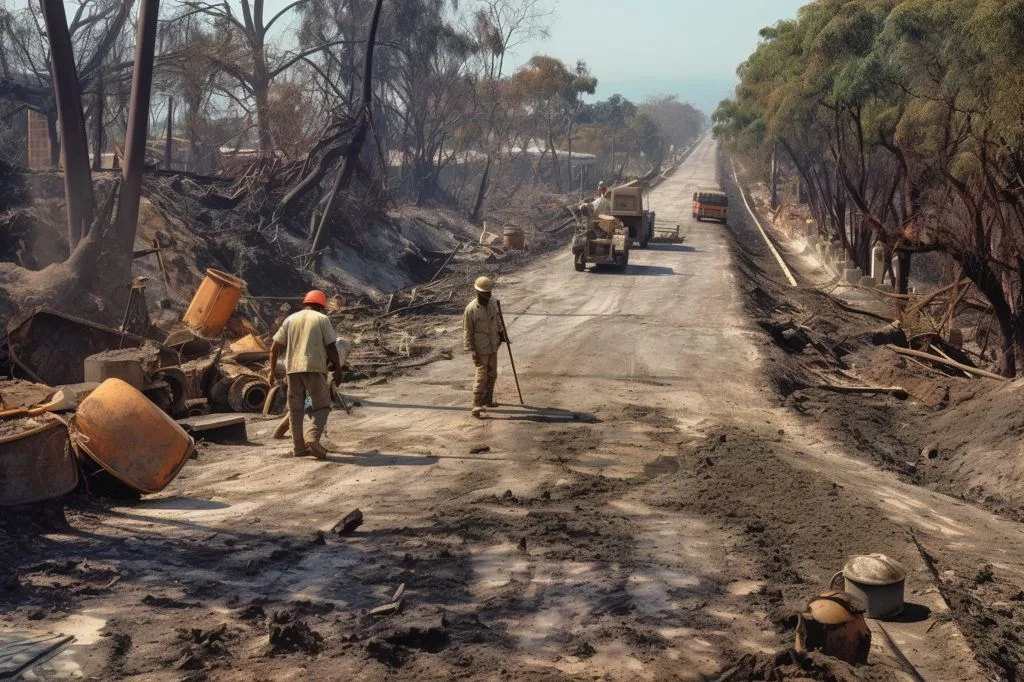The Western Cape in South Africa is experiencing a severe shortage of police resources, leading to an increase in crime rates. The Western Cape Safety Plan, in collaboration with the City of Cape Town, has deployed Law Enforcement Advancement Plan (LEAP) officers to target high-crime areas. However, the lack of resources significantly hampers the efficacy of the South African Police Service (SAPS) in tackling crime in affected areas. The implementation of data-driven policing strategies and sustained efforts are essential in addressing the alarming crime rates in the province.
Subtitle: Addressing the Resource Deficit in SAPS and the Role of LEAP Officers in the Western Cape Safety Plan
The Struggle with Insufficient Resources and Escalating Crime Rates
The South African Police Service (SAPS) in the Western Cape is grappling with a severe shortage of resources, which undermines its ability to manage the increasing crime rate effectively. Reagen Allen, Western Cape Minister of Police Oversight and Community Safety, has emphasized the vital need for data-driven policing strategies to counter the surge in murders within the province.
During a recent press conference, the National Minister of Police, Bheki Cele, disclosed that more than 100 murders occurred in the Western Cape within a single week. This alarming statistic highlights the necessity of allocating SAPS officers according to data, evidence, and regions with the highest murder and crime rates. Several SAPS stations, such as Gugulethu, Delft, Harare, Kraaifontein, Mfuleni, Ravensmead, and Woodstock, remain critically under-resourced and have unacceptably high police-to-population ratios.
Despite South Africa’s ideal staffing requirement of 193,476 officers at SAPS station level during the 2021/22 fiscal year, there are currently only 105,935 officers. The approved establishment for the Western Cape is 21,367; however, as of the 2020/21 fiscal year, this figure stood at 19,505. This lack of resources significantly hampers SAPS’s efficacy in tackling crime in affected areas.
The Western Cape Safety Plan and the Role of LEAP Officers
In an effort to address SAPS’s shortcomings, the Western Cape Government introduced the Western Cape Safety Plan (WCSP). In collaboration with the City of Cape Town (CoCT), the WCSP launched Law Enforcement Advancement Plan (LEAP) officers in 2020. These officers are strategically deployed based on evidence and data to target high-crime areas, such as Delft, Gugulethu, Harare, Khayelitsha (Site B policing precinct), Kraaifontein, Mfuleni, Mitchells Plain, Nyanga, Philippi East, and Samora Machel. Other high-crime areas with LEAP deployments include Atlantis, Bishop Lavis, Hanover Park, Lavender Hill, Steenberg, and Grassy Park.
Every year, the Western Cape Government submits Policing-Needs-and-Priorities (PnP) reports to the National Minister of Police’s office, detailing resource allocation deficiencies and pressing requirements. However, according to Minister Reagen Allen, these submissions continue to be overlooked.
From September 24 to 30, 2023, there were 130 homicides in the Western Cape, representing the highest weekly total of the year. Gugulethu had the most homicides, with 13 cases, followed by Delft and Harare, with eight cases each. Four precincts—Kraaifontein, Mfuleni, Ravensmead, and Woodstock—each recorded six homicides.
LEAP officers have demonstrated their ability to make a difference despite SAPS’s persistent under-resourcing. In Delft, for example, the 144 LEAP officers deployed there account for nearly 50% of the entire SAPS contingent. Other precincts with LEAP deployments include Gugulethu (63 officers), Kraaifontein (72 officers), and Mfuleni (76 officers). The fourth-quarter crime statistics for the 2022/23 fiscal year indicated a 14.1% decrease in the murder rate, while the first quarter of the current fiscal year experienced a 5.5% reduction rate.
The Importance of Overhauling SAPS and Implementing Data-Driven Policing
For SAPS to effectively address murders, a comprehensive revamp of its operations is necessary, and the national minister must demonstrate urgency in tackling this issue. The Western Cape Government is committed to applying pressure on SAPS through oversight and advocating for the devolution of policing powers to competent provincial governments. These actions aim to ensure that SAPS is administered in a manner that delivers professional and diligent service to the citizens of the province.
Minister Reagen Allen expressed his deep concern and sympathy for the numerous victims’ families, urging swift action from SAPS in apprehending the criminals and employing intelligence to avoid further tragedies. Ultimately, the implementation of data-driven policing strategies and the sustained efforts of the Western Cape Government’s WCSP and LEAP officers are essential in addressing the alarming crime rates in the province and providing residents with the safety and security they deserve.
1. What is the current situation in the Western Cape regarding crime rates and police resources?
The Western Cape in South Africa is experiencing a severe shortage of police resources, leading to an increase in crime rates.
2. What is the Western Cape Safety Plan?
The Western Cape Safety Plan is a plan introduced by the Western Cape Government to tackle crime rates by deploying Law Enforcement Advancement Plan (LEAP) officers to target high-crime areas in collaboration with the City of Cape Town.
3. What are LEAP officers?
LEAP officers are law enforcement officers strategically deployed based on evidence and data to target high-crime areas in the Western Cape.
4. What is the police-to-population ratio in the Western Cape?
Several SAPS stations in the Western Cape remain critically under-resourced and have unacceptably high police-to-population ratios, despite South Africa’s ideal staffing requirement of 193,476 officers at SAPS station level during the 2021/22 fiscal year, there are currently only 105,935 officers.
5. What are Policing-Needs-and-Priorities reports?
Policing-Needs-and-Priorities (PnP) reports are submitted every year by the Western Cape Government to the National Minister of Police’s office, detailing resource allocation deficiencies and pressing requirements.
6. How have LEAP officers impacted crime rates in the Western Cape?
LEAP officers have demonstrated their ability to make a difference despite SAPS’s persistent under-resourcing. The fourth-quarter crime statistics for the 2022/23 fiscal year indicated a 14.1% decrease in the murder rate, while the first quarter of the current fiscal year experienced a 5.5% reduction rate.
7. What is needed to effectively address murders in the Western Cape?
For SAPS to effectively address murders, a comprehensive revamp of its operations is necessary, and the national minister must demonstrate urgency in tackling this issue.
8. What is Minister Reagen Allen’s position on the current situation in the Western Cape?
Minister Reagen Allen expressed his deep concern and sympathy for the numerous victims’ families, urging swift action from SAPS in apprehending the criminals and employing intelligence to avoid further tragedies.








